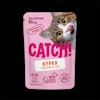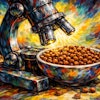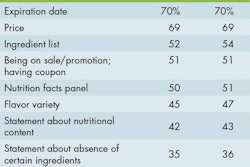From alligator and brushtail possum in dog treats to kangaroo and buffalo in dog and cat foods, petfood companies have cleverly catered to--and, to some extent, helped create and stoke--growing consumer demand for ever more exotic and novel sources of protein. Just as people are seeking to try new types, and increase the levels, of protein in the foods they eat, they are doing the same for their pets' foods, thanks to ongoing humanization. In some cases, beliefs that novel proteins will help alleviate what might be pet allergies or sensitivities to certain types of protein also play a role.
For manufacturers of both petfood and human food, however, this goes far beyond marketing appeal. The soaring demand for protein poses a real challenge, because current available supplies just can't keep up. This gap between protein supply and demand is expected to continue to expand as the world population reaches 9 billion people by the year 2050 (and as global pet ownership also increases).
To help address the challenge, at least on the human food side, the Institute of Food Technologists initiated a program called FutureFood 2050. The related website has recently showcased a series on alternative proteins, featuring interviews with scientists and entrepreneurs studying things such as developing non-dairy protein from sweet blue lupine seeds and using plant-based proteins to "copy" meat.
While those might not be practical for petfood--especially for cat food, with cats being obligate carnivores--other studies might be worth our industry's time and interest. For example, in 2013, Dutch physiologist Mark Post and his team made news when they created and served burgers made of lab-grown cultured meat. In a FutureFood 2050 interview, Post says he's working on a business plan to start a company based on the technology this year and that he can imagine commercial cultured meat "factories" opening in developing countries within the next 10 years.
Another alternative protein source gaining attention is insects, and that is already spilling over into petfood. FutureFood 2050 highlights two entrepreneurs in this area: Daniel Imrie-Situnayake of Tiny Farms, which is trying to bring modern agricultural technology to insect production, especially with crickets, to drive scale and lower costs; and Harman Singh Johar of Aspire Food Group, an edible insect supplier with projects in the US, Ghana and Mexico, who believes innovation combined with competition can help scale up insect production to make it more efficient and financially feasible.
With both alternatives, lab-created meat and insects, there is a decided "ick"? factor for many people. Entomophagy (the practice of eating insects) is fairly common in some parts of the world but definitely not in developed regions like North America and Western Europe. While cheerleaders such as the people interviewed by FutureFood 2050 claim the practice is growing globally--citing examples such as JetBlue Airlines announcing it would start serving cricket flour protein bars in snack boxes this year--that doesn't mean people on JetBlue flights will actually eat the bars, especially after reading the label.
As for lab-grown meats, witness the outrage that occurred in the US a few years ago when news broke that McDonald's and other restaurants were using a meat product called "pink slime"? or finely textured lean beef, in their burgers and other meat offerings.
This distaste for alternative meats and insects has a clear implication for petfood--again, thanks to humanization. Case in point: by-products, those parts of livestock animals deemed too gross for people to eat yet, at one point, a perfect source of protein for pets because of high availability, digestibility and palatability. Then they became demonized and are now used as a negative marketing tool by some petfood companies.
It's too soon to know if a similar fate awaits insect protein in petfood. One company, Protix BV, is trying to make the case for this protein source for both human food and petfood: Working with private label petfood manufacturer Jonker Petfood last year, it developed a prototype dog food with insects as the only source of protein. (One of the Protix co-founders, Tarique Arsiwalla, will be addressing petfood applications for insect-based ingredients at Petfood Forum Europe 2015 on June 10 in Cologne, Germany.)
What Protix and other companies are betting on is the cold, hard reality of market supply and demand, and the escalating prices of current, traditional protein sources. Last year, NPR reported that, due to rising beef prices, even pink slime was making a comeback.



















